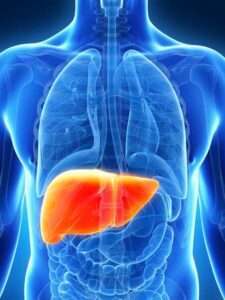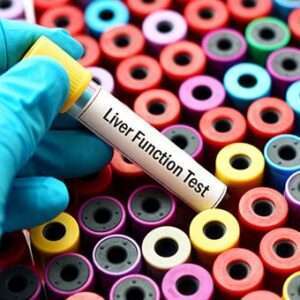This article provides information on the following topics: Ast (aspartate aminotransferase) levels, symptoms, treatment and what level of ast is dangerous. Liver disease can cause high AST or Aspartate Aminotransferase levels in blood.
What level of ast is dangerous?
There are many levels of ast, with the most dangerous being a level 10. This is when you have to be hospitalized and put on life support for breathing and blood pressure. A level 8 can cause dizziness and nausea and may lead to fainting spells or seizures Level 3 is also very sensitive as it causes sleep disturbances, mood swings, anxiety or panic attacks
The healthiest person has an ast level of 0-2 which means they don’t feel any symptoms at all. So what does this mean? Well if you’re feeling like your normal self (0-2) then chances are that your ast isn’t too high. You should keep track of how often these feelings come up so they don’t get worse.

Asthma is a disease that causes the airways to become inflamed and narrow. There are many different levels of asthma, but some can be extremely dangerous. Asthma attacks may happen at any time and without warning, so it’s important to know what level you have before it becomes too much for your lungs.
There are many different levels of ast. It is important to know the level that you are at before deciding what kind of treatment you want to go through. The most dangerous level is 10, but this does not mean that it cannot be treated.
If you have a high level for an extended period of time, then your health can deteriorate and lead to death. In order to prevent this from happening, it is important to get help early on in the process so that you can avoid any serious damage being done while also getting the proper treatment needed.
The three different levels of ast are mild, moderate and severe. Mild cases may have some trouble concentrating or feeling down for a short period of time. Moderate cases will have more difficulty concentrating and they may also experience depression or anxiety issues as well as difficulty sleeping at night. Severe cases can result in hospitalization with symptoms such as hallucinations, delusions, agitation and panic attacks. It is important to know the level of severity so you can take appropriate steps to deal with your condition if needed
What is an alarming AST level?
If you or someone you know has recently undergone an AST test, it is important to understand what the results mean. An AST level of over 200 units per liter is considered alarmingly high and can lead to serious health complications.
The AST (aspartate aminotransferase) level is a liver enzyme. A high AST level in the blood can indicate several different things like: hepatitis, cirrhosis, and drug toxicity. The AST levels are not specific to any disease; they can be elevated by many conditions and diseases.

An alarmingly high amount of Aspartate AminoTransferase (AST) in your blood might mean that you have Hepatitis or Cirrhosis or possibly even drug toxicity from drugs such as acetaminophen or alcohol.
An AST level is a measure of the amount of a particular enzyme in the blood. The AST level is used to help diagnose liver injury and disease, as well as other conditions that affect the production or function of this enzyme. An alarming AST level can be an indication for further medical evaluation and treatment.
It is important to know what an alarming AST level is. An AST level of over 300 is considered alarming because it means that you are at risk for liver failure or death.
If your AST levels are over 300, you need to call your doctor immediately. Your doctor may prescribe medications and perform blood tests in order to identify the cause of the elevated levels. You will also be required to undergo a liver biopsy if your AST levels remain high after two weeks of treatment with these medications.
When should I be concerned about AST levels?
AST, or aspartate aminotransferase is a liver enzyme that can indicate damage to the organ. AST levels in your blood are an indicator of liver health and should be tested when you have symptoms such as fatigue, dark urine, pale stool, loss of appetite and jaundice (yellowing of skin/eyes).

Aspartate Amino Transferase is a liver enzyme that has many uses including showing signs of liver problems like fatigue and yellow eyes/skin. If you notice these things it’s best to get checked out by a doctor.
AST, or aspartate aminotransferase, is a liver enzyme that assists in the production of amino acids. When levels become elevated it can indicate liver damage and/or disease. While there are many different causes of AST elevation, some common culprits include viral hepatitis (such as Hepatitis A), alcoholic liver disease (also known as cirrhosis), fatty infiltration of the liver (known as steatohepatitis), and drug-induced hepatoxicity.
Aminotransferase; an enzyme produced by your body’s cells to help them function properly.
For those of you who are not sure what AST is, it stands for aspartate aminotransferase. When levels are high, there may be a liver disease or muscle damage. It can also indicate some infection in the body. If your AST level is elevated, then you should see a doctor to find out the underlying cause and get treatment if needed.
AST stands for aspartate aminotransferase and measures how much this enzyme is being produced by your liver cells when they break down proteins from food that have been eaten. The more protein that has been consumed over time will increase the amount of AST in the blood stream which may be an indication of problems with digestion.

An AST (alanine aminotransferase) level is a blood test that can help determine if there are any liver issues. It’s important to be aware of this because high levels can indicate an inflammation, tumor, or liver disease. The AST level will also tell you the severity of your condition and how quickly it needs to be addressed.
Some people who may need to worry about their AST levels: people with hepatitis C, chronic alcohol abuse, fatty liver disease, and more. If you think you might have elevated AST levels but aren’t sure what they mean for you specifically, talk to your doctor.
Read More:

